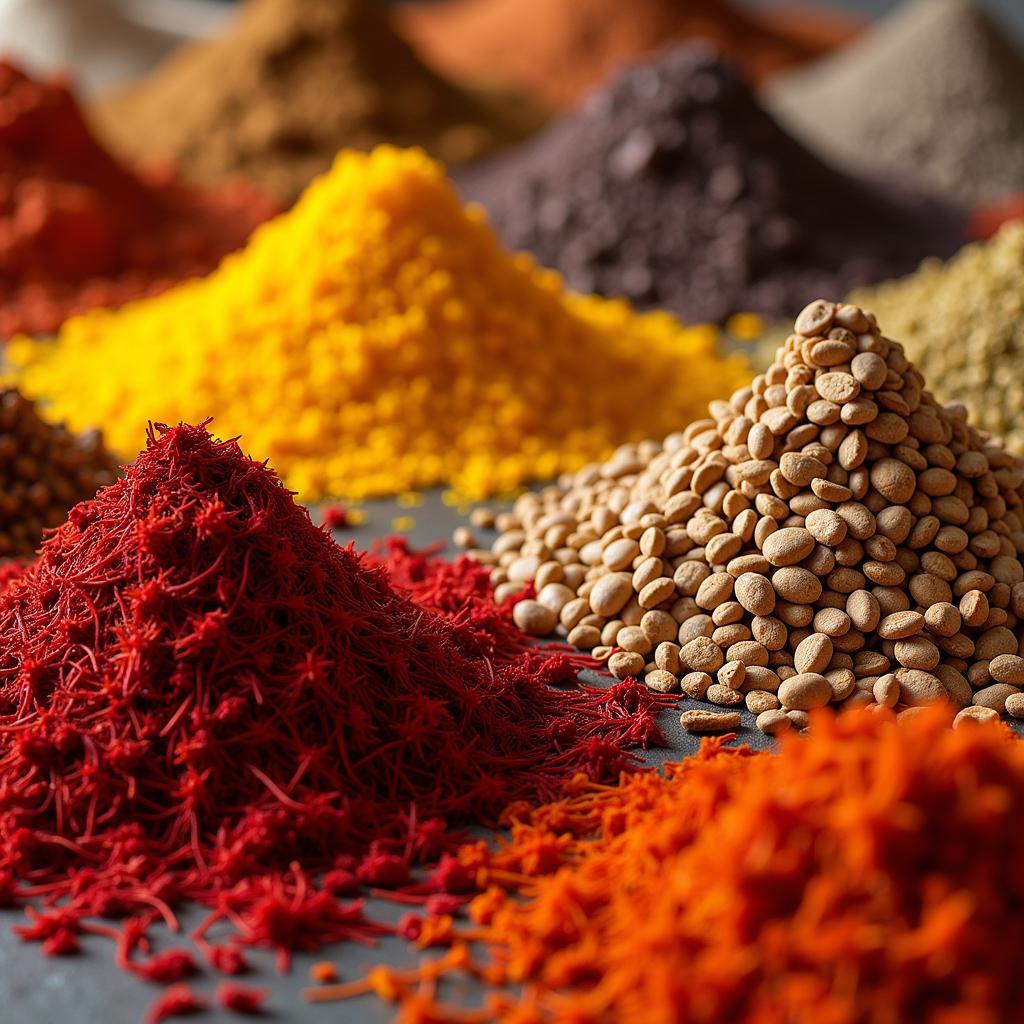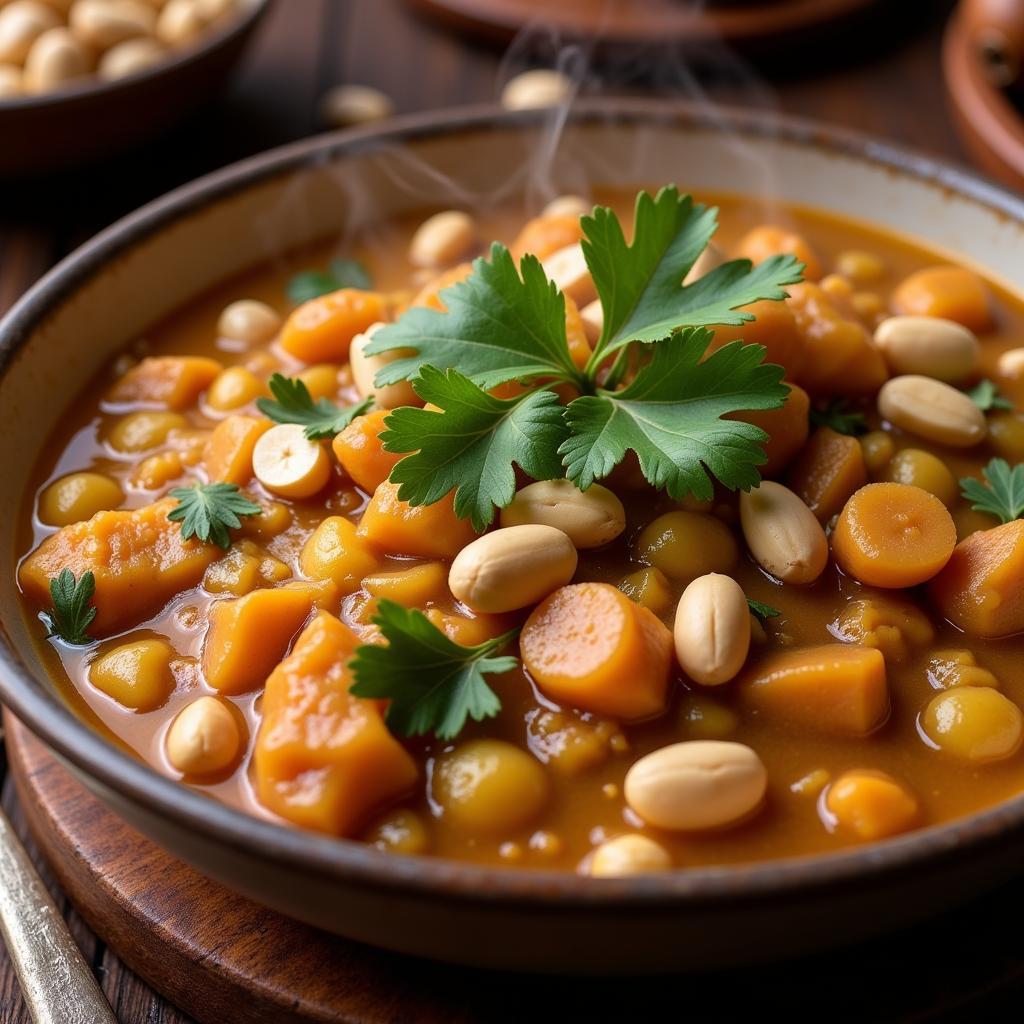Exploring the Diverse World of African Flavors
African Flavors are a vibrant tapestry woven from the continent’s rich culinary heritage. From the fragrant spices of North Africa to the hearty stews of West Africa and the unique grains of East Africa, the continent offers a diverse range of tastes and textures that tantalize the taste buds. This article delves into the heart of African cuisine, exploring its regional variations, key ingredients, and the cultural significance of food across the continent. We’ll uncover what makes African flavors so unique and why they are gaining global recognition. After reading this, you’ll be eager to experience these culinary delights for yourself.
A Journey Through Regional African Flavors
African cuisine is not a monolith but a collection of diverse culinary traditions shaped by geography, climate, and cultural influences. Each region boasts its unique signature dishes and flavor profiles. North African cuisine, for example, is known for its aromatic spices, like cumin, coriander, and saffron, often used in tagines and couscous dishes. West African cuisine features hearty stews, often made with peanuts, tomatoes, and okra, while East Africa utilizes unique grains like teff and sorghum, and incorporates influences from Indian and Arab cuisine. Southern African cuisine, on the other hand, is known for its braais (barbecues) and the use of indigenous ingredients like biltong (dried, cured meat). To truly appreciate African flavors is to understand the distinct characteristics of each region. Check out african flavors for milk for some inspiring ideas.
What makes North African cuisine so distinctive?
The use of fragrant spices like cumin, coriander, and saffron, along with the prevalence of tagines and couscous, sets North African cuisine apart.
What are the key ingredients in West African cuisine?
Hearty stews, often made with peanuts, tomatoes, and okra, are staples of West African cooking.
What grains are commonly used in East African cuisine?
Unique grains like teff and sorghum are frequently incorporated into East African dishes.
 North African Spices – Cumin, Coriander, and Saffron
North African Spices – Cumin, Coriander, and Saffron
Key Ingredients in African Flavors
Certain ingredients play a crucial role in shaping the distinctive flavors of African cuisine. These range from staple grains like millet and sorghum to flavorful spices and herbs. Peppers, both mild and fiery, add a kick to many dishes, while peanuts and palm oil provide a rich, nutty base for sauces and stews. Plantain, a starchy fruit, is a versatile ingredient used in both sweet and savory dishes. Leafy greens, such as amaranth and cassava leaves, are important sources of nutrition. Explore the vibrant world of african flavors for sale and discover the exciting possibilities they offer.
What role do peppers play in African cuisine?
Peppers, ranging in heat, add a distinctive kick to many dishes, enhancing the overall flavor profile.
What is the significance of plantain in African cooking?
Plantain, a starchy fruit, is incredibly versatile, used in both sweet and savory dishes across the continent.
 West African Peanut Stew
West African Peanut Stew
The Cultural Significance of Food in Africa
Food in Africa is more than just sustenance; it’s a celebration of life, community, and tradition. Meals are often communal affairs, bringing families and friends together. Sharing food is a sign of hospitality and respect. Traditional cooking methods, passed down through generations, preserve cultural heritage and connect people to their roots. Specific dishes are often associated with particular ceremonies and celebrations, further emphasizing the cultural significance of food in African societies. You can learn more about the art of African cooking by watching an african cooking show.
Why is food so important in African culture?
Food transcends mere sustenance in Africa, representing community, tradition, and a celebration of life itself.
How are traditional cooking methods preserved?
Traditional cooking methods are passed down through generations, ensuring the preservation of cultural heritage.
Embracing the Future of African Flavors
African flavors are gaining increasing recognition on the global culinary stage. Chefs and food enthusiasts around the world are discovering the richness and diversity of African cuisine. As interest grows, there’s a growing demand for authentic African ingredients and products. This presents an opportunity to support local communities and promote sustainable agricultural practices. The future of African flavors is bright, with the potential to enrich global culinary experiences for years to come. For those in Essex, african food wholesalers essex offer a convenient way to access these unique ingredients.
Conclusion
African flavors offer a captivating culinary journey, reflecting the continent’s diverse cultures and rich traditions. From the fragrant spices of North Africa to the hearty stews of West Africa, the unique grains of East Africa, and the flavorful braais of Southern Africa, the continent provides a symphony of tastes that are as unique as they are delicious. By exploring these diverse african flavors, we can gain a deeper appreciation for the continent’s rich culinary heritage and its vibrant culture. Try some new recipes and embrace the delightful world of African cuisine.
FAQ
-
What is the most common grain used in Africa? Several grains are common, including millet, sorghum, and maize (corn).
-
What are some popular African spices? Popular spices include cumin, coriander, ginger, and berbere.
-
What is a tagine? A tagine is a North African stew cooked in a distinctive earthenware pot with a conical lid.
-
What is jollof rice? Jollof rice is a popular West African dish made with rice, tomatoes, onions, and spices.
-
What is biltong? Biltong is a form of dried, cured meat that originated in Southern Africa.
-
What is injera? Injera is a spongy, sourdough flatbread that is a staple food in Ethiopia and Eritrea.
-
What is piri-piri sauce? Piri-piri sauce is a spicy sauce made from piri-piri peppers, originating in Southern Africa.
You might also be interested in reading more about specific African dishes like african fried custard apple.
Need help exploring African flavors? Contact us! Phone: +255768904061, Email: [email protected] or visit us at Mbarali DC Mawindi, Kangaga, Tanzania. We have a 24/7 customer service team ready to assist you.



